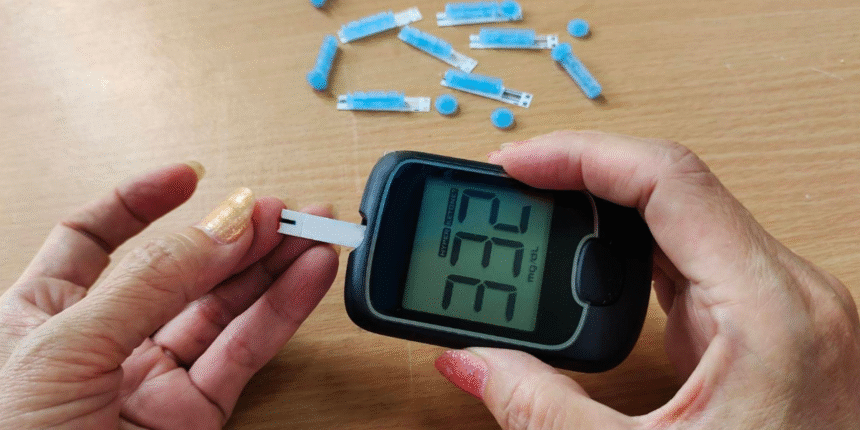Blood Sugar Spikes Matter Even If You’re Not Diabetic
Blood Sugar Spikes don’t only concern diabetics. Even healthy individuals experience short-term glucose fluctuations after eating. But when these spikes happen frequently, they can silently harm your metabolism, increase inflammation, and raise your risk of chronic diseases over time.
Understanding and controlling your blood sugar can improve energy, focus, and long-term health.
1. What Are Blood Sugar Spikes?
After eating carbohydrates, your body breaks them down into glucose, which enters the bloodstream. A blood sugar spike occurs when glucose rises sharply, triggering a large insulin response from the pancreas to restore balance.
While occasional spikes are normal, repeated surges make cells less responsive to insulin, a condition known as insulin resistance—a key factor in obesity, type 2 diabetes, and heart disease.
➡ Learn more from Harvard Health on blood sugar and diet
2. How Blood Sugar Spikes Affect Energy and Mood
Sharp glucose rises often lead to equally sharp crashes, leaving you tired, hungry, and irritable—a cycle sometimes called the “sugar rollercoaster.”
table blood sugar levels maintain consistent energy throughout the day and reduce cravings. Spikes and drops also affect neurotransmitters, influencing concentration, anxiety, and mood regulation.
3. The Link Between Blood Sugar and Metabolic Health
Frequent blood sugar spikes contribute to chronic inflammation and oxidative stress. Over time, these effects damage blood vessels and organs, raising the risk for:
- Heart disease
- Non-diabetic insulin resistance
- Fatty liver disease
- Cognitive decline
Research in Nature Metabolism shows that people with normal fasting glucose but frequent post-meal spikes still have higher risks of cardiovascular disease.
4. Hidden Causes of Blood Sugar Spikes
Even people with “normal” diets may trigger spikes through daily habits such as:
- Eating refined carbs (white bread, pasta, pastries)
- Drinking sugary beverages
- Skipping breakfast or eating late at night
- Chronic stress and poor sleep
- Sedentary behavior
Being non-diabetic doesn’t mean your glucose levels are always stable—lifestyle habits drive much of the variation.
5. How to Control Blood Sugar Spikes Naturally
Here’s how to stabilize blood sugar spikes without medication:
- Eat balanced meals: Include protein, healthy fats, and fiber with every carb source.
- Go for a walk after meals: Light activity helps muscles use glucose efficiently.
- Prioritize breakfast: A protein-rich start reduces spikes later in the day.
- Limit added sugars: Choose whole grains and fruits over processed sweets.
- Stay hydrated: Water helps flush excess glucose from the bloodstream.
➡ Internal Link: See related post – The Hidden Link Between Hydration and Energy Levels
6. When to Be Concerned About Blood Sugar Levels
If you often feel fatigued after meals, crave sweets, or experience brain fog, it may indicate glucose imbalance. Continuous glucose monitors (CGMs) or periodic blood tests can help track trends.
Discuss results with a healthcare professional to identify whether your blood sugar spikes are within healthy limits.
7. Key Takeaways
- Blood Sugar Spikes impact energy, mood, and long-term metabolic health—even in non-diabetics.
- Repeated spikes promote insulin resistance and inflammation.
- Balanced meals, movement, and hydration help maintain stable glucose levels.
- Small, consistent changes can prevent future metabolic disease.
➡ External Source: NIH: Blood Glucose and Your Health


